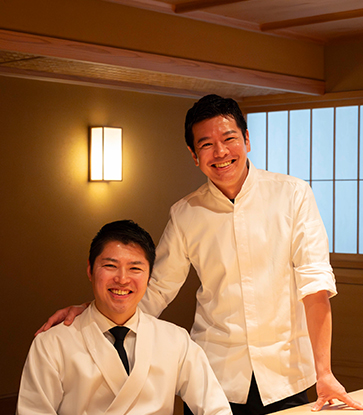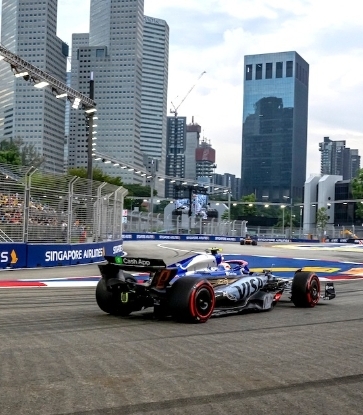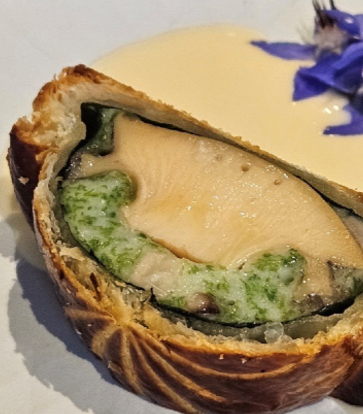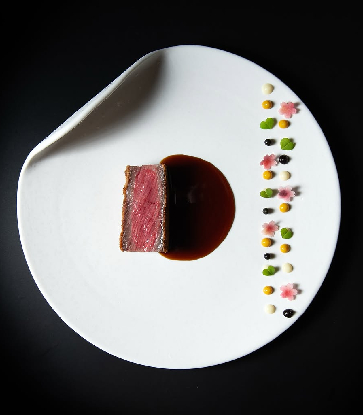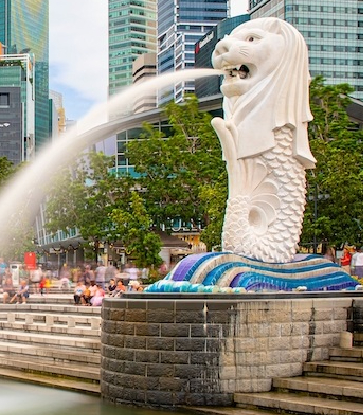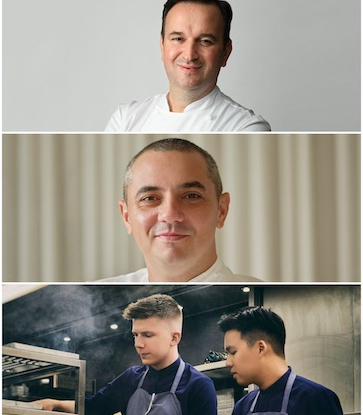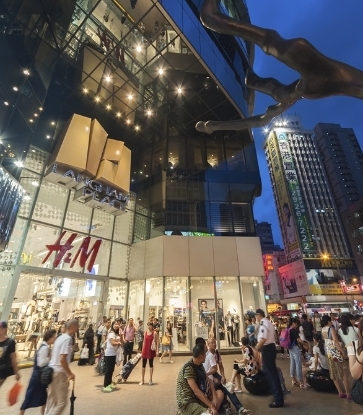“But it’s not even a real Chinese restaurant,” naysayers demurred.
The skepticism, however, does not bother Chen Kentaro. “It’s fine, because they are right,” says the 36-year-old Tokyo native, as he deftly pulls apart a deep-fried chicken wing at Singapore's Newton Circus, where we are in the middle of supper. “Shisen Hanten is about showcasing the particular flavours of my family’s style of cooking Sichuan food, because we want more people to try it.” “Because I grew up in Japan, it is Sichuan food that has developed in Japan.”
His grandfather - goes the story he’s told so often by now that his kitchen colleagues can rattle off on his behalf - was a Chengdu native who migrated to Japan in 1958. Finding a dearth of Sichuan food there, Chen Ken Min started Shisen Hanten to showcase the delicacies of his hometown to his newfound countrymen. More than half a century later, the restaurant is now a brand name in Japan with 13 outlets across Tokyo. Today, grandson Chef Kentaro oversees the entire operations along with Chen Ken Min's son, Chen Kenichi, who found fame hosting popular Japanese reality cooking show, Iron Chef.

He should know. He’s seen the inevitable evolution take place - within just three generations of his own family.

As relations between the two countries grew during Chen Kenichi’s time, Chen Kenmin repeatedly urged his son to return to Sichuan, and in particular Pi Xian - a town renowned for its black bean paste - to source authentic Sichuan ingredients, which are firm mainstays in Shisen Hanten’s restaurants today.
But the fondness for the flavours of his heritage hadn’t been an early calling for chef Kentaro.
The final episode of the final season of Iron Chef would turn out to be the pivotal catalyst that kick-started chef Kentaro’s culinary career as it was then when his own father had to compete against chef Sakai. “It was so exciting. They only had one hour to cook. I was very stressed. But of course I was on my father’s side,” chef Kentaro says resolutely. “Of course.”
Though his father lost the competition ultimately, the then-20 year old had gained a newfound respect for his roots. “I was very moved when [my father] stepped forward to embrace chef Sakai. That was when I decided that I should do Sichuan food, because it a part of who I am,” he recalls.

“When I first started as the only Japanese in the kitchen, my peers all bullied me. But I spent time playing mahjong and basketball with during our break, and slowly we got along. After half a year, we were buddies,” he recounts. This is why communal meals with his 18-member team in Singapore are now a key event to him, and Newton Food Centre a preferred spot to bring the crew for post-shift suppers.
His favourite dishes? Laksa and bak kut teh, “because you can eat them in the morning, for lunch or for supper”, he laughs. “But what I like the most is having a big table full of food with the team, so that we get to bond with each other. It is probably the most important part of what I do.”
“Like with my grandfather and my father, I like restaurants that give you the feeling of going home," he adds. When he's in Singapore, Japanese restaurants in Cuppage are also a frequent haunt, and for a treat, Ki-sho, a Japanese fine-dining restaurant along Scotts Road, and a peer in the city's two-Michelin-starred category, Restaurant Andre.

“Ramen! “ she replies, amused.
“Spicy!”
Spicy? You tease: even for his Sichuan palate? “Of course, I’m human too,” chef Kentaro laughs.
“I don’t always eat spicy, though I like it,” he adds, citing sushi and burrata as comfort foods because “I grew up in Tokyo after all.” Though Dad makes simple dishes at home, it is Mum who is the better cook, he says candidly. “She can do both Japanese dishes and eggplant, mapo dofu, and other popular Sichuan dishes.” His younger brother, a music major, joined the family business three years ago while Dad is still actively involved. “Retired? Not at all,” chef Kentaro retorts on behalf of the latter, who is now teaching his Chinese-style of cooking in culinary schools around Japan, driven mainly by the dwindling popularity of Chinese food in Japan. “Most of the younger chefs only want to do Western food, like French or Italian food,” he explains.

His style comes from his more recent training in Chengdu, a city which itself is under constant evolution, and a subject of his endless fascination. “Most of my friends from back then are culinary teachers there now. I went back in 2008 and since then, I have been going back twice a year, often with my disciples, to try new and original Sichuan dishes. Things there are developing very quickly - even the identity of Sichuan food is always changing.”
While his personal culinary journey so far has as arduous as it has been eventful, it was a path long envisioned by this youthful go-getter. “When I started cooking at 20 and 21, I already set myself some targets. Back then, it was to learn basic techniques, such as knife skills, to understand my Sichuan roots, and to improve my Mandarin. When I was 27 or 28, I wanted to learn about business and management, which my dad taught me. Then when I turned 30, my dream was to open in Singapore, Taiwan and in China,” he recalls.
And how did winning two stars for Shisen Hanten factor into his projected trajectory? “It was unbelievable,” chef Kentaro says.
“I was hoping for one star; I always felt we were up for one star. But two stars, it's like watching Japan win the World Cup - it’s a miracle!”




